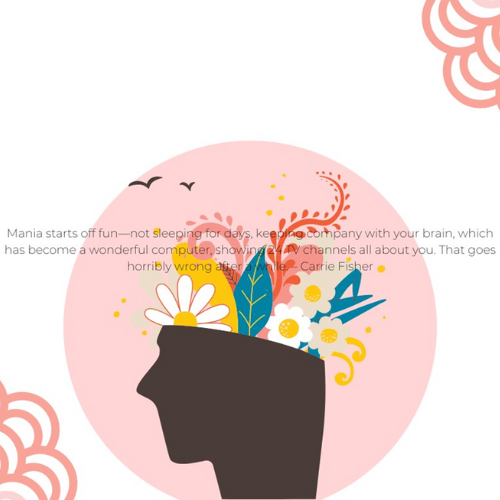Educating Children of African Immigrants in the United States About Bipolar Disorder

Some children born in the United States to African immigrant households may suffer from bipolar disorder, a dangerous ailment. Let’s investigate the causes and offer support to those impacted.
Millions of Americans suffer from bipolar disorder, a severe mental ailment that also affects children born to African immigrants. Extreme mood, energy, and cognitive swings are the hallmarks of bipolar disorder, which poses special difficulties for diagnosis and treatment—especially in younger patients.
Understanding Bipolar Disorder:
Bipolar disorder: What is it?
Mania and depression are the two main states in which bipolar disorder presents. Manic episodes can cause people to feel uncontrollably happy, energized, and impetuous. On the other hand, deep melancholy, lethargic behavior, and hopelessness are traits of depressive episodes. These extreme and upsetting mood fluctuations can affect a person’s relationships, academic performance, and day-to-day functioning, among other areas of their life.
Because bipolar illness has a wide range of symptoms and frequently coexists with other mental health problems, diagnosing it in youngsters can be challenging. Diagnosing children can be challenging since some may exhibit more modest symptoms than others, even if some children clearly have manic or depressed periods. Furthermore, psychotic symptoms, including delusions or hallucinations, might make evaluation more difficult and increase the risk of misdiagnosing, especially schizophrenia.
Bipolar disease is thought to result from a complex interplay of genetic, environmental, and neurological variables. African immigrant children may experience particular pressures such as prejudice, cultural adjustment, and socioeconomic inequality, all of which can exacerbate the disorder’s development. A major risk factor for bipolar disorder is familial history, which also contributes to genetic predisposition.
Identification and Management:
When diagnosing bipolar illness in children, medical experts must do a thorough evaluation that includes lab tests to rule out other disorders, physical examinations, and interviews. Based on the pattern and intensity of symptoms, bipolar disorder can be diagnosed using criteria from the Diagnostic and Statistical Manual of Mental Disorders (DSM).
Bipolar disorder is typically treated with a mix of medication, psychotherapy, and self-management techniques. Cognitive-behavioral therapy is one type of psychotherapy that helps families and children understand and manage the difficulties associated with the disease. Antipsychotics and mood stabilizers are two examples of medications that can help control symptoms and regulate mood swings. Furthermore, self-management techniques like early symptom detection and education give kids the power to take an active role in their care and preserve stability.
The Importance of Support:
For African immigrant children with bipolar disorder, supportive family contexts, culturally sensitive healthcare practitioners, and community services are critical. Early intervention and better outcomes for impacted persons can be facilitated by open communication, acceptance, and access to mental health treatments. Initiatives such as the Systematic Treatment Enhancement for Bipolar Disorder (Step-BD) also provide important insights on long-term management methods and efficacious treatment modalities.
Conclusion:
African immigrant children in the United States suffer particular mental health issues, such as an increased risk of bipolar disorder. We can guarantee that these kids receive the attention and assistance they require to flourish in spite of the difficulties associated with bipolar disease by increasing awareness, encouraging early intervention, and creating supportive environments. Children diagnosed with bipolar disorder can enjoy happy lives and make valuable contributions to their communities with the right care and support.
